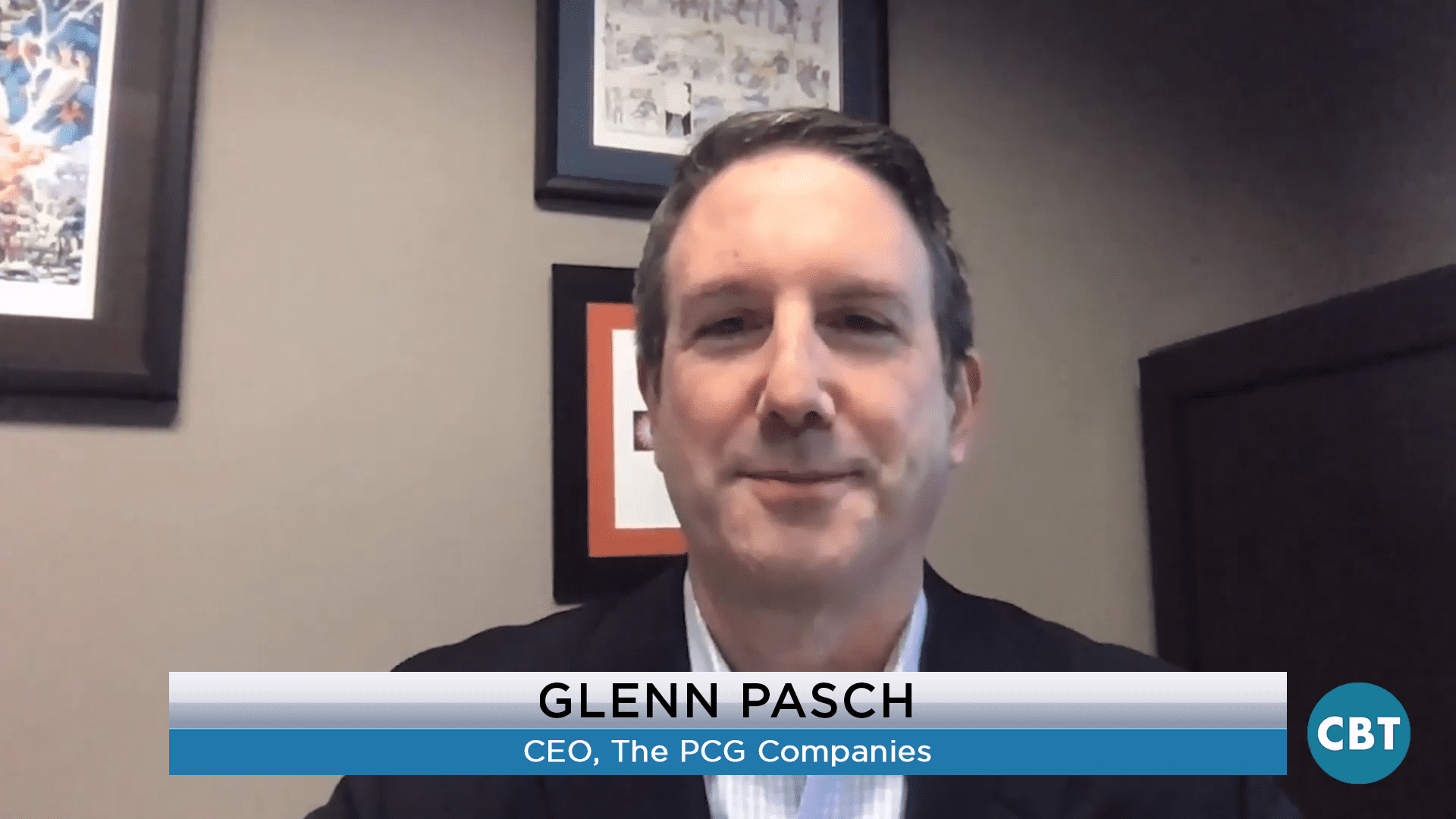Is your dealership making the most of your current marketing process, software, and employees? Well, now is the time to assess the strengths and weaknesses of your dealership and make any necessary changes. On today’s show, Jim welcomes back Glenn Pasch, CEO of the PCG Companies to discuss tips for compiling and analyzing your dealership’s marketing data, hiring employees, and tackling other challenges facing the industry today.
VIDEO TRANSCRIPT:
Jim Fitzpatrick: Good to see you, Glenn, and welcome back to CBT.
Glenn Pasch: Thanks so much for having me. Glad to be here.
Jim Fitzpatrick: Talk to us about what dealers need to do to make the most of their current marketing processes, software, and employees before seeking outside resources. There’s so many dealers out there that just don’t use their current resources, and then they jump out and sign up for another thousand bucks a month on this widget or that.
Glenn Pasch: It’s a great topic, and it’s something that I see all the time is it becomes this disjointed sort of Frankenstein monster so to speak. I mean, in the coming weeks we’re going to be heading to NADA, and dealers are going to come back with more things to add on. To your point, they’re not even maximizing what they’re currently having, so for me what I always recommend to dealers is take a breath and actually write it out. Go to the person who pays the bills, because they’re the ones who know what we’re paying for every single month. You may actually find a few things in that list that you say, “Well, I thought we canceled that.” Well, no. The checks are going out every month.
Jim Fitzpatrick: 100%. I know what you mean.
Glenn Pasch: Right? Then start to maximize and say, “Okay, we have this vendor is our marketing. Well, what are they doing for us? How much are they paying? Well, this is the tool for CRM. This is our trade in tool,” all the way through. Then really, honestly say to yourself on a scale of one to five, five being great, “How comfortable am I knowing what I’m getting? How comfortable are we actually utilizing the tool?” Then you can make a decision of, “Well, before we change something, what are the facts?”
Glenn Pasch: I posted something today because I heard a quote this week and I thought it was so fantastic. It said, “My facts don’t care about your emotions.” Right?
Jim Fitzpatrick: That’s a good point.
Glenn Pasch: Right. Again, we run a lot on emotion. If you actually look at it and say, “Well, before we change this CRM, why are we changing the CRM? Is it a technology piece, or is it, ‘Well, my sales people don’t like’?” Well, what does that mean, and who’s actually helping them to really implement and use your tools, because it’s too expensive to change all the time.
Jim Fitzpatrick: That’s right. That’s right, and all too often a dealer will be anxious to hire a new general manager that may be the flavor of the month or a superstar and tell him or her, “Yeah, when you come in, make any changes that you want. Whatever you see, whatever you deem necessary, you go ahead and make those changes.” Then, of course, the GM brings in what they are most comfortable with. Not necessarily a better product. Just something they’ve been using for the last five years. When it reality, the product that you may have is more superior to the one that they want to bring in, right?
Glenn Pasch: Right, and I agree. To touch on that, I hear that a lot: “Well, we brought a general manager in who’s a superstar.” Based on what? Who said they’re a superstar? How did you really vet that they were a superstar? I’m always fascinated with this concept. What you just describe is that, “I run my business, but whoever comes in as a manager can do whatever they want with the business,” versus saying, “No, this is the way Fitzpatrick Toyota runs. Now, these are our processes. This is what we do. If I’m going to hire you as a manager, can you do this? If you can’t, then maybe you can’t work here.” I mean, McDonald’s doesn’t let the manager just decide what they’re going to do today.
Jim Fitzpatrick: We’re going to use a new beef vendor, right? We don’t like those hamburgers.
Glenn Pasch: Something like that, or we’re going to change how the hamburger’s made or whatever. I mean, it’s fascinating because, to your point is that superstar manager may not be there three months later, and all the disruption that they’ve caused, now the next person comes in and they wonder why sales people there’s a turnover, employee turnovers every month. You wouldn’t want to come into your business and every month all your employees go, “Well, what’s going to go on today?”
Jim Fitzpatrick: That’s right.
Glenn Pasch: “What are the rules today?”
Jim Fitzpatrick: That’s right.
Glenn Pasch: “Now this week we do it this way. This week we do it this way.” Consistency wins.
Jim Fitzpatrick: What are some of the tips that you’ve got for compiling and analyze your dealership’s marketing data?
Glenn Pasch: Well, there’s a lot of platforms out there. Most of the website platforms, marketing partners, agencies, all have a platform. There was our product vistadash that aggregated everything to it, but there’s a lot of platforms out there that are going to have your data there. I don’t think it’s necessarily an issue of getting my data. The tip really is sitting with that vendor to say, “What does this data mean?”, because everybody will provide it. As I said, I don’t think it’s hard to aggregate data. It’s understanding what’s important to you as a dealer. The key is, going back again to that list of, “I hired this vendor A. What is the service? What do I pay? What should I expect each month, and then how do I measure?”
Glenn Pasch: That’s a conversation initially when you’re bringing on a vendor to say, “How do you measure success? How can I as a dealer, measure, hold you accountable? What are you going to provide me in terms of metrics that are going to mean something to me so that I can say, ‘Good, this relationship is working for both of us’?” I think it’s more that then, “Can you give me data?”
Jim Fitzpatrick: I agree. Challenges the industry is facing with sales staff compensation. One of the things that just kind of bothered me was the fact that 30 years ago a mini-deal in a dealership paid $100. Right? Paid 100 bucks. Fast forward 30 years. A mini-deal still pays $100. It’s totally unrealistic in 2019 to have this kind of an approach towards compensation in the retail industry. I know I’m going to get some dealers that say, “I’m never tuning into CBT again,” but it is what it is, and unless somebody opens up this dialogue and talks about this very important topic, it’s not going to be talked about.
Glenn Pasch: What is going to help the industry retain people that it could, because, to your point, there are people who say, “Commissions motivate”. It motivates a few people. I think security motivates people. I don’t see any reason where if you had an employee, right, someone who works for you right now, I have employees, they’re paid a salary. There’s no [inaudible 00:07:05] anything, but there’s a performance level of an expectation.
Jim Fitzpatrick: Totally agree.
Glenn Pasch: If you turn around, you gave your sales people, you say, “Listen …” You’re seeing a lot of dealerships who are going out now non-commission sales people. They get a salary. Now, maybe at the end of the month, if the team … Right? This is the other way to do it. If your team hits certain goals, then everybody benefits. Now I’m helping everybody versus, “Me, me, me, me, me.” You just set the expectation. “If I’m paying you this, well then you should sell 10.”
Jim Fitzpatrick: That’s right. Talk to us before we let you go here. Hiring managers. Should the dealership promote from within when hiring a manager or hire an outside? Hire outside of the industry? What is your take on that? If it was your dealership and you needed to hire managers, would you look outside the auto industry?
Glenn Pasch: I can speak for my company here. I always look to promote from within if possible, because they already know the culture. They have a loyalty factor to me. Now, the top sales person 99% of the time is not going to be a great manager. It’s why Michael Jordan was not a good coach. He doesn’t understand how to communicate what he does. It’s just natural to them.
Jim Fitzpatrick: That’s right.
Glenn Pasch: When someone asks me, “Well, who should I promote?” I always say, “Okay, who’s your manager currently?” Let’s say you’re the manager, and you’re not here today. Sales people have an issue. Something comes up. Who do they go to? Who do they go to?
Jim Fitzpatrick: I see where you’re going. That’s a good point.
Glenn Pasch: I said, “That’s the person that I would start talking to, because people feel like they can approach them. That person’s helping them. That person knows how to teach.” I said, “I’d rather build off of that.” That would be mine because that’s a whole different skillset.
Glenn Pasch: Bring somebody from the outside, it has its pluses and minuses as well, meaning that they’re going to come in, and they’re not going to know all of the, “Well, Glenn always does it that way so we don’t tell. We leave Glenn, alone.” Right? They just come in with open eyes and go, “Nope. This is the way it’s going to be,” but you will have to win people over. You will have to bring someone in who has to understand your culture. Yeah, it is, but I would, if I was going to bring somebody in from the outside, I would make sure it was a similar industry in terms of pace and volume. I would bring someone in who was a manager of a busy restaurant. You can bring somebody in from the mortgage industry, or you can bring somebody in financial advisor, well, are they dealing face to face with customers? Right? Bringing somebody in who can manage, but they never talk customers face to face? That’s a train wreck.
Glenn Pasch: I think it’s more of understanding what you’re looking for in a manager, and I think to your point you had touched on before, what traits would I look into a manager? I would be thinking more along the lines, I’ve said this before on the show, is more along the lines of coach. Are they going to get out there and really roll up their sleeves and train people to get better and give them feedback to get better? You’re not going to make your team better just yelling at them or telling them what to do. You got to roll up your sleeves and show them what to do, and help them get better.
Jim Fitzpatrick: Absolutely. Absolutely. That’s the key to it is that involvement for sure. Well, Glenn, we could sit here all day and hit all these different topics that I’ve got listed here, but for the sake of time we’ve got to close it out here. I want to just say thank you so much for joining us on CBT. It’s always very enjoyable, and your content and your insight is great. I know our viewers and managers and dealers and marketing people get a lot of out of it. Thanks again for joining us today on CBT, and we’ll see you out at NADA, which we’re excited about, just here in a couple of weeks.
Glenn Pasch: Great. Thanks so much.
Jim Fitzpatrick: Thank you.
Speaker 1: CBT Automotive Network. The number one most watched network in retail automotive. CBT is a part of the JBF Business Media Family.








